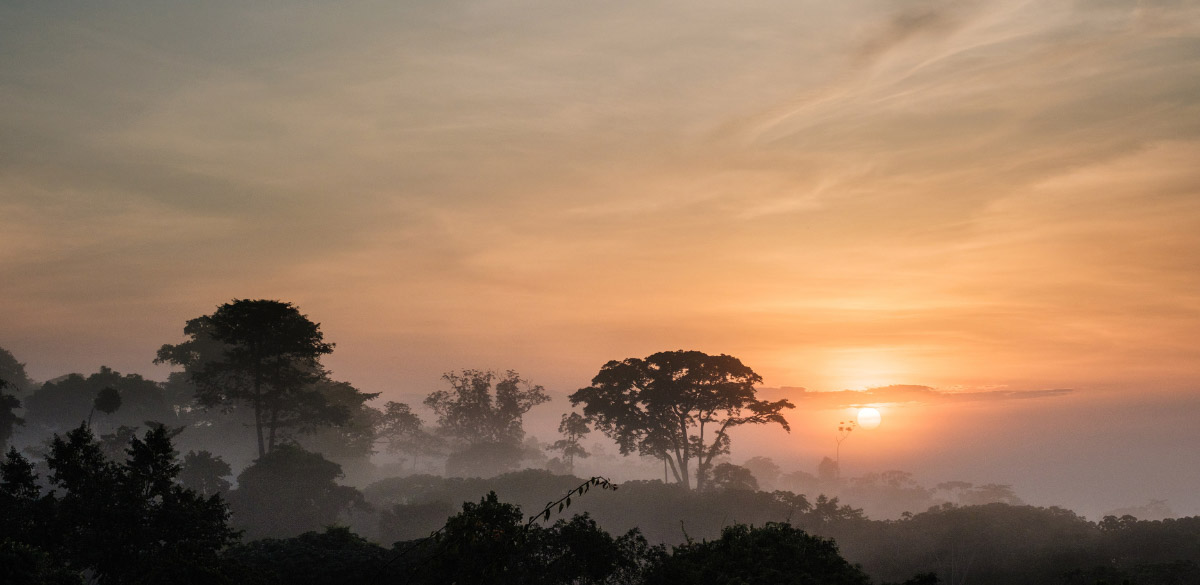As the yachting industry searches for sustainable solutions to replace its reliance on teak, the Forest Stewardship Council (FSC) has implemented new standards in an initiative to promote sustainable forestry. In this article, we explore the efforts made in the Central African Basin country of Gabon to provide the industry with a renewable hardwood resource made for use at sea.
Gabon is home to the popular Okoumé tree species, known as Gabon’s ‘green gold’. This plays a significant role in the country’s economy and is used primarily for veneer and plywood production, furniture, musical instruments, and yacht manufacturing.
Fortunately, responsible forest management practices like the FSC certification are protecting Gabon’s green gold and forest ecosystem. Responsible forestry strikes the right balance between forest conservation, biodiversity protection, and livelihood security. This approach enables businesses, governments, and communities to effectively fulfil their economic, social, and environmental goals.
In Gabon, two FSC-certified companies are committed to responsible forest management and are introducing lesser-known timber species into the global market. They also use more common species like Iroko in new ways, creating a true alternative to teak. Iroko has similar characteristics to teak and is known for strength, durability, and resistance to rot. Of more than 70,000 tree species on the planet, it is one of very few that is suitable for use as decking – hence it also being known as ‘African teak’.
One example of a company that is committed to responsible forest management in Gabon is Precious Woods – Compagnie Equatoriale des Bois (CEB). Since taking over CEB in 2007, Precious Woods has been using FSC standards for responsible management to run operations on close to 600,000 hectares of certified forest management concessions in Bambidié, Lelama, and Okondja in the Haut Ogooue and Ogooue-Lolo provinces situated in eastern Gabon.
The company’s unique approach to forest management includes social development, community engagement, biodiversity protection, and responsible harvesting and processing. They employ approximately 2,750 people who benefit from stable income.
“The company only harvests two mature trees out of 380 per hectare every 25 years,” says David Zakamdi, Director of Sustainable Development at Precious Woods Gabon. Beyond its commitment to protecting 10% of its forest, set by national legislation, 25% of its forest concessions are set as high-value conservation areas.
They include freshwater sources, traditional sites, and biodiversity havens. In 2018, Precious Woods Gabon set up a new high-value conservation area of 40 hectares in the Okondja forest after discovering it was a pool for elephants, whose population is on the rise.
Forest operations at Precious Woods begin with rigorous data collection and planning, which enables the company to have a clear picture of fauna and flora species to the level of every single mature tree. “The aim is to reduce the impact of forestry operations on wildlife, the environment, water and fauna,” says David Zakamdi. He says this careful planning has enabled the company to strengthen its reforestation efforts. “Precious Woods has planted 235,000 trees since 2006, including the protected Kevazingo species, Azobe, Okoumé, Moabi, Pao Rosa and more.” Reforestations are driven by a dedicated team that plants at least 15 seedlings for every log removed from a harvesting site.
Introducing the lesser-known timber species
When logs of Iroko leave Precious Woods, they are transported to Companie des Placages de la Lowé (CPL), a Gabonese company belonging to Arbor Group that specialises in Okoumé veneers and exotic woods.
“93% of our mills are supplied with FSC-certified materials, guaranteeing the highest standards in terms of environmental and social requirements,” says Nicolas Eymery, the Director General of CPL.
For many years, CPL has been using research and development to introduce lesser-known timber species to its products, thanks to their collaboration with Precious Woods. “Through research and development trials, we were able to approve Iroko as a good candidate for a new product,” continues Nicholas.
Through an innovative process to meet the very specific requirements of the boat-building sector, CPL introduced a decking product with Iroko that has an exceptionally strong wood structure. Thanks to this characteristic, it is capable of withstanding harsh weather conditions and is resistant to intensive use on the ocean.
“The addition of Iroko into our product range is a response to our customers’ need for diversification in the decking applications of boats, and the shipbuilding industry’s urge to become more sustainable,” says Nicolas. “Our main goal is to develop an FSC-certified sourcing strategy to guarantee a secure supply to our customers.”
Nicolas strongly believes in the power of sustainable management. He says forest certification is one of the best ways to guarantee that trees are harvested in a way that will preserve the forest for future generations. “To keep the same forest cover and species composition, we need to ensure there is perpetual regeneration,” he adds.
Gabon: The gold standard for responsible forestry
If both companies are succeeding in their forest management objectives, it is because they operate in a country that has embedded responsible forest management through the FSC as part of its development strategy and economic revenue diversification plan.
Gabon has long been recognised for its virtuous forestry practices; it has set aside 15 million hectares for responsible forest management, with 2.2 million hectares certified by the Forest Stewardship Council (FSC). In 2018, Gabon adopted FSC as a model for all certified concessions. This has made Gabon a gold standard for responsible forestry in Africa and beyond, setting an example for other countries to follow.
In 2010, the country took bold steps to retain value from its forests by introducing a ban on raw log exports, which has boosted employment in processing factories. This ban has been a significant factor in increasing employment in the forestry sector and promoting the processing of wood within Gabon.
Gabon is a country with the lowest deforestation rates in the world (lower than Germany) and it intends to keep it that way. The country has set ambitious targets to maintain its forestry cover and promote sustainable economic growth.





























0 Comments